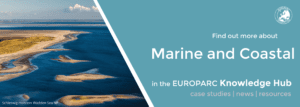Virtual Ocean Dialogues 2021
Soure: Pixabay
On May 25th and 26th, the World Economic Forum organised a two-day online event to examine the biggest challenges our seas are facing and to search for bold solutions that will help create healthy, resilient and thriving oceans.
Protecting the oceans and our planet
This year marks the start of the UN Decade of Ocean Science for Sustainable Development: an ambitious decade to move from science to solutions for sustainable development, create innovative public-private partnerships and find a way to use relevant science-based knowledge to help communities most vulnerable to the current and future changes of the ocean.
So why do we need to protect our oceans? Because they can provide solutions to global challenges – from regulating the global climate to delivering food security or providing a source of income to millions of people.
The ocean is a fundamental resource to tackle the climate emergency.
On average we protect 5% of our oceans. Large scale ocean conservation is needed, and good news is that we are increasingly seeing the foundation of large Marine Protected Areas. It is also important to keep in mind that when appropriately managed, ocean systems have a relatively high resilience and ability to recover.
The second edition of Virtual Ocean Dialogues started with a welcome message from António Costa, Prime Minister of Portugal, who mentioned the challenging biodiversity loss that affects the functioning and structure of world’s oceans. Mr. Costa stressed the necessity to give greater visibility to marine matters and embed them in the negotiations of the Climate COP26, which will take place in Glasgow next November, and the Biodiversity COP15 scheduled for next October in Kunming, China, in order to create a strong marine agenda.
Different aspects of marine conservation were addressed, including a session on how we communicate scientific findings and recommendations.
Bridging sciences and solutions for the ocean
Kerstin Forsteg, Founder and Director of Planeta Océano, stressed the necessity of increasing ocean literacy, strengthening local leaders and ensuring they are included in discussions and decisions about the ocean. In order to engage everybody in ocean conservation, she stressed how scientific results often do not reach those stakeholders that most need it, such as small scale fishermen, and that a greater effort in communicating our science should be done.
Another point of the discussion highlighted the importance of involving and empowering young ocean professionals. Mr Alfredo Giron of World Economic Forum emphasised that early career ocean professionals bring a collaborative spirit, open minds and enthusiasm to the table for the Ocean Decade but they need to feel their voices are included to help develop inclusive ocean solutions.
Sustainable food from the ocean
The ocean and aquatic ecosystems play a vital role in food systems, but they are fragile as a resource. If the ocean is to become a pillar of local food systems, these need to be more sustainable, accessible and respectful to the environment.
Speakers in this session talked about a consumer revolution arising from different dietary habits of young generations and its impacts, about the need to involve more women in decision-making and designing food systems, and about the necessity of national, international and cross-sector dialogue.
The session focussing on food harvested from the oceans was also a great opportunity to launch the UpLink’s Blue Food Challenge – an initiative of the World Economic Forum and its partners to find innovations related to aquatic foods that maximise nutritional and economic benefits to local communities. The call is now open, so if you have a big idea, make sure to submit it by June 22!
Discover more key moments and quotes from the #OceanDialogues speakers here and keep an eye on our knowledge hub for inspiring case studies and news on the marine topic!
